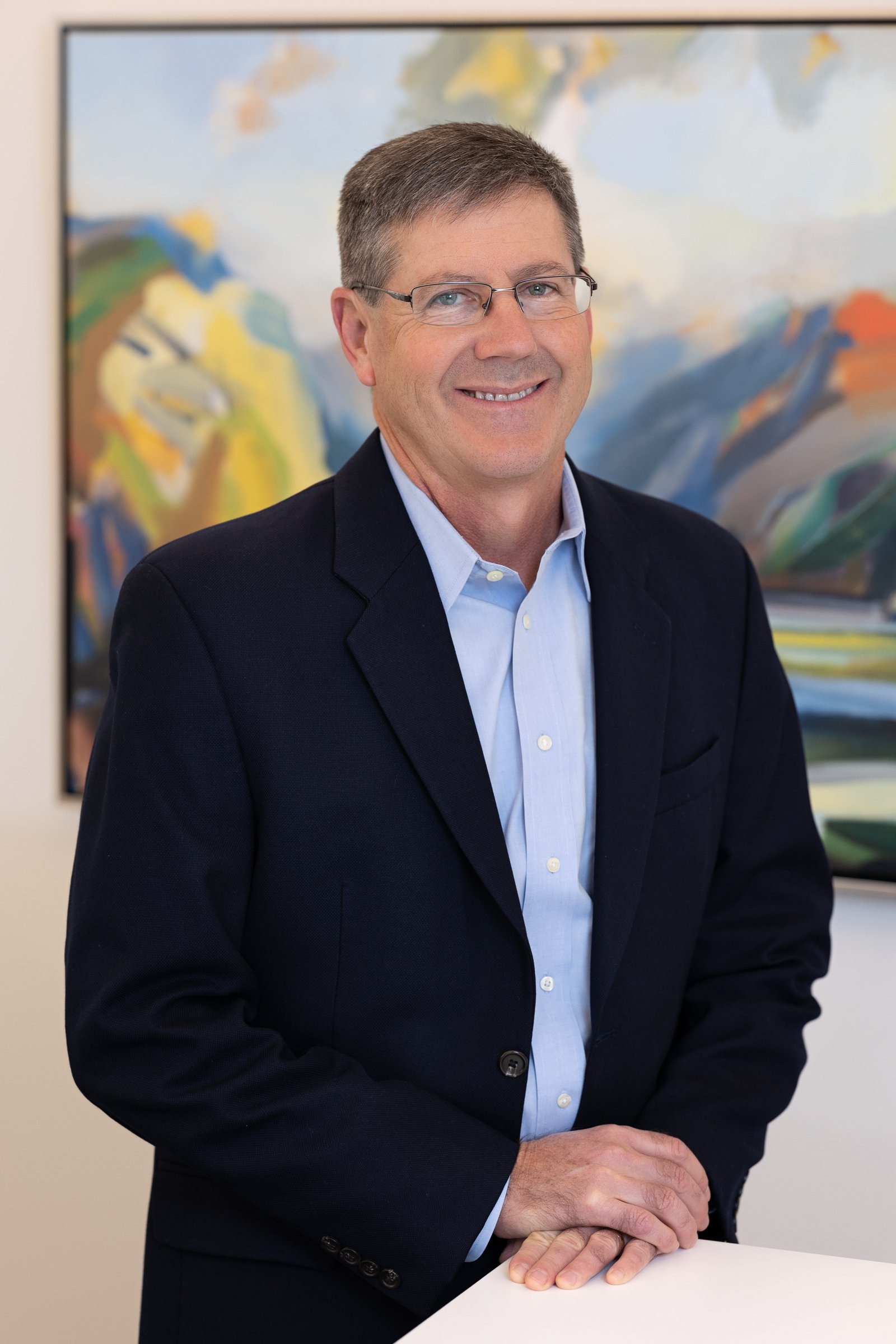David Houchen shares what to expect with interest rates, jobs, inflation and more

Although the last few years have seen rapid interest rate hikes, high inflation and an unpredictable housing market, there may be light at the end of the tunnel. First Federal Bank of Kansas City’s Chief Financial Officer David Houchen sat down recently to share his thoughts on the 2024 economic outlook. Houchen believes we’ll see a more predictable market with strong employment opportunities, giving individuals and families more confidence to take financial steps forward, like saving more consistently, paying down debt, or buying a home.
On the economy
Q: From where you sit, what's the outlook for 2024?
A: “I think the economy is going to continue to muddle along. I was one of the folks – like many economists – who thought we were going to have a recession in 2023. It didn’t happen. We could still have one in 2024. But if we do, I don't think it's going to be deep – especially here in the Midwest. We tend to not have the highs and lows like what occurs on the East Coast and West Coast. I tend to think we'll have fairly stable financial markets and there will be good opportunities for people in the financial part of their lives in 2024.”
On the job market
Q: What do you think the job opportunities will be?
A: “Employment nationally is really strong and that's something the economists got wrong last year. With interest rates rising, they thought that unemployment would also rise which is what's historically happened. But there continues to be lots of opportunities for those who want to work. Every employer I talk to says their biggest challenge is retaining and attracting the right talent. With that being a priority of so many employers, they’re going to continue to pay well to attract and retain the people they need.”
“I think the job market will continue to be strong as baby boomers retire. That creates opportunities for others. So those who want to work will continue to be able to work. And strong employment creates opportunities – whether that be buying a house or buying a car or saving for a future need.”
On housing
Q: What do we need to know about housing?
A: “Housing has gone through both extremes of the housing cycle over the last few years with 2020 and 2021 being super busy with a lot of activity, both home purchases and refinancing mortgages. Rates hit record lows. Then the Federal Reserve really tried to slow down the economy in ‘22 and ‘23 by raising interest rates really quickly. Mortgage rates went from 3% to 8% in a short period of time. That really slowed down housing activity.”
“For ‘24, I think the buying and selling of houses is going to gradually pick up as life happens and families grow and older folks downsize. Activity will pick up in 2024 but it will likely be a gradual improvement as opposed to any significant swings. It seems to me that the range of mortgage rates has stabilized, so I think people will be better able to project what their monthly payments will look like.”
“One question we sometimes get is when's the right time to buy a home? I think the best time is when our family and life situations dictate that it's time to buy. It’s helpful to have some money saved for the purchase, but if we think we need to wait until we have a 50% down payment and interest rates are 3%, we may be waiting a really, really long time.”
On interest rates
Q: Where do you think interest rates are headed?
A: “Interest rates will always fluctuate but the range is narrower than it was over the last couple years. I think that the key to interest rates is watching what happens with inflation. Inflation really spiked as a result of the Covid-19 stimulus and fiscal spending. It got up to 9% for a period of time. Now it's trending lower. If it continues to trend lower, then interest rates will also trend lower. I personally have my doubts that the inflation rate will get down to the 2% that the Federal Reserve would like it to. It’s going to get close. We might end up with inflation in the 3-4% range, which isn't horrible. It’s manageable, but it is a bit higher than the last three, four, or five years before Covid happened.”
On saving
Q: What does all this mean for saving?
A: “For investment purposes, interest rates staying in the range they are now is beneficial. We can earn a fairly risk-free 3%, 4% or 5% return on savings accounts and certificates of deposit. That's an option for short-term savings that we haven't had in recent years.”
“Savings is always a good thing. Start as early as you can, even if it's a very small amount. There's this interesting thing called the time value of money or how money compounds over time. Even if you can just save $10, $20, or $50 a month consistently and even if you invest it very conservatively, you’ll be surprised by how much it grows through the magic of compounding interest.”
“I encourage people to first have an emergency fund and then, put something into retirement savings. If their employer matches their contribution in a 401(k) plan, definitely take advantage of that.”
On borrowing
Q: How will this affect borrowing?
A: “I think rates are likely to stabilize which gives us the ability to better plan purchases. In other words, it gives us some level of certainty that interest rates aren't going to go from 3% today to 8% in a few months, which is what happened in 2022.”
On credit card debt
Q: Any insights on how to pay down debt?
A: “Look beyond the minimum monthly payment. There's often a 20-25% interest rate on unpaid credit card balances. For example, if you have a $10,000 credit card balance and you only make the minimum payment, over time you could easily make $30,000 worth of payments on that $10,000 balance. That money is just gone. It's great for the credit card companies but a horrible investment for you.”
“Pick your balance with the highest rate of interest and pay that down first.”
Final thoughts
Q: Any financial advice you’ve found particularly helpful?
A: “I grew up on a little farm in central Missouri and learned a lot of my basics there. The biggest one my folks and the people around me taught was to live within your means. It sounds really simple but can be really, really challenging to do. Especially in the age of buy-now-pay-later and social media when it's easy to see all the fun things our friends are doing. We can have enjoyable lives while living within our means. It will not only help us to be financially healthy, but it actually helps our emotional health as well.”
For more smart insights on managing, borrowing, and saving money, visit our Financial Health Hub. And if you have any questions, don’t hesitate to reach out to any of our friendly bankers.






